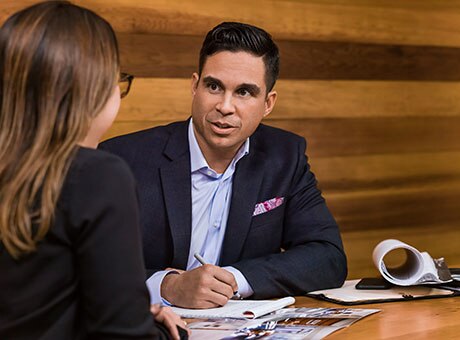When your client purchases an investment property, the cost of the property is a capital expense, meaning your client has to write it off incrementally over several years. As a general rule of thumb, major repairs such as replacing the heating, ventilation, and air conditioning system are considered capital expenses as well, while minor repairs are current expenses. However, there are exceptions to these rules.

Addressing Special Situations in Capital Expenses for Business Real Estate
Accessibility Modifications
The Canada Revenue Agency has special rules for reporting expenses for building modifications designed to accommodate people with disabilities. Rather than adding these expenses to the capital cost allowance of the building, your client can deduct these expenses as current expenses. In other words, it can claim these costs on its tax return the year it incurs the expenses.
Expenses that fall into this category include interior and exterior ramps, remodeled bathrooms to accommodate wheelchairs, and electric door openers. If your clients purchase visual fire alarm indicators, listening or telephone devices for people with hearing impairments, Braille panels or audio indicators to place near elevators in parking garages, or disability-specific software or hardware, they can also claim these amounts as current expenses.
Repairs While Selling a Property
If a property owner needs to do repairs to sell a building, those repairs are also capital expenses. In particular, this rule applies when the sale is contingent on the repairs. In contrast, if the property owner is just paying for routine repairs or repairs that are not directly related to the sale, they’re not current expenses.
Rehabbing Older Buildings
As indicated above, many repair expenses are current expenses, but if your client purchases an older building that needs renovation to make the units rentable, those repair expenses are considered capital expenses. As such, your client needs to deduct those expenses slowly over time. They cannot claim those expenses in the year they were incurred.
Soft Costs
When rehabbing a property so it becomes suitable to rent out, construction and repair costs are just the beginning. In most cases, your clients will also incur interest on loans, property taxes, legal fees, and your accounting fees. These are soft costs.
During the rehabilitation period, your clients must add soft costs related to the land under and around the building to the capital cost of the building. But for soft costs related to the building itself, your clients can opt to claim those amounts as current expenses or add them to the capital cost of the property.
To illustrate, imagine a client purchased a building that needs extensive repairs to make it suitable to rent out. While making the repairs, your client receives a property tax bill for $1,000, and $700 relates to the value of the building while $300 relates to the lot itself. In this situation, the $300 is a soft cost related to the land, so your client must include that amount with the capital cost of the building. As the $700 relates to the building, your client can deduct it as a current cost on that year’s tax return or include that amount with the capital costs. Note that although landscaping relates to the land, it is not a soft cost. It is a capital expense.
If you do the accounting for clients who own investment properties, you should help them understand these special rules that have a direct impact on their tax liability. Your clients need this information so they know what to expect at tax time and how that’s going to affect their cash flow.


